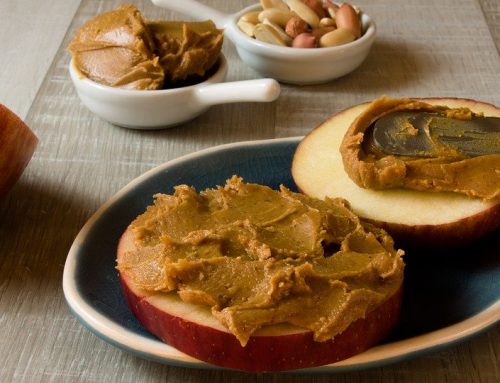Food is an essential aspect of the physical and emotional well being of any individual. For a baby, the mother is his guiding light to the fascinating world of food. But for a mother, introducing solid food for her baby can be confusing. A mother is often plagued by questions like when is the right time for introducing solid food? Which food to introduce first? How many meals and what quantity is appropriate for a baby? Why is my baby rejecting food? Why my baby does not eat without distractions?
In this post, Padmashri Shanmugaraj, a highly experienced nutritionist and a mother of 2 kids, answers questions about introducing solid food and weaning. She talks about the importance of trusting your baby’s instincts with nutrition requirements. And the positive impact of healthy food habits and family meal times.
I. Starting solid food:
Are there any signs a baby shows for readiness to solid food?
Generally, by the time a baby reaches 4 to 6 months of age, he can hold his head up in a high chair, open his or her mouth when food comes their way, and weighs enough to (about 5+ kg or more) to be ready for solid foods.
When to start solid food for babies? Can a baby have only breast milk/formula till he shows signs of readiness for introducing solid food?
Ideally, a baby can start solid food after he completes 6 months. Beyond 6 months, baby’s iron and vitamin C requirements are higher than what BM/formula alone can provide.
Many paediatricians recommend introducing solid food (or semi-solids) by 4.5 months. Are there any effects of starting solid food before the WHO recommended 6 months guideline?
A study in 2013 showed that introducing solid food too early can cause health risks, according to the researchers, because babies’ bodies may not yet prepare for chewing and swallowing. Introducing solid food too soon may also suggest mothers are cutting short breastfeeding. The risk for obesity, diabetes, respiratory and ear infections, eczema, is higher in children who are not breastfed. Such children also tend to require more doctor visits, hospitalisations and prescriptions.
In contrast, latest study published in the journal Childhood Obesity which followed babies for up to six years, tracking their weight and development, found that at what age solid food starts did not affect.
So, the experts say its safe to follow these optimal infant feeding practices:
- Exclusive breastfeeding for approximately the first 6 months
- Timely introduction of complementary foods
- Continued breastfeeding for at least the first year
Experts recommend to promote and support these feeding practices for all infants because of the numerous health benefits for the infants and the mothers.
II. Transition from breastmilk/formula to solid food:
What approach would you recommend to introducing solid food while weaning baby from breast milk?
Introducing one meal every month, according to me seems like a more practical and gradual approach. However, for mothers working long hours outside the home, the rate at which they add newer meals can be faster, depending on the child’s acceptance.
Weaning from breastmilk depends on the child and the mom. If the mother is away at work, the transition can be quicker, but with a stay at home mom, the weaning can be slower.
From the nutrition standpoint, what should be the ratio of breast milk and solids in baby’s diet?
In the first six months of weaning, get the child introduced to as many food flavours and as many food textures as possible. We also want the child to associate hunger/satiety with solids and slowly take the breastmilk away. Again, the transition to solids should be gradual.
Having said that, I recommend introducing as many home-cooked foods as possible in these first six months of weaning and not attach too much importance to the actual quantity of food the child has consumed. I believe in trusting the child to get all his nutritional requirements from whatever ratio of breast milk and solids, he deems appropriate.
By what age should a baby have 3 major meals?
By the age of 9-10 months, a baby should have 3 major meals (breakfast, lunch and dinner).
Is it essential to gradually transition to solids?
If the transition is fast, the baby might show some resistance to solids in the beginning. The pace of transitioning to solids can, however, be very individualistic. Respect baby’s speed of accepting solids.
Any advice for working moms who wish to continue breastfeeding till the baby is 1 year old but find it difficult to express/feed often?
A working mom is usually away from her baby for 10-14 hours. With that length of separation, it is recommended to feed the baby before going to work, immediately after coming back from work, and feed through the night on demand. If it is possible, a mom can express milk (at home or work) for 1-2 feeds through the day. Usually, this arrangement works well for many working mothers who wish to breastfeed their baby, even if they are unable to express breastmilk at work or spend any time to express breastmilk at all.
This arrangement of breastfeeding is a better option than just relying on solids for baby’s nutritional requirements till 1 year of age (and not giving breastmilk at all).
III. What can go on my baby’s plate:
What should be baby’s first food when starting solids?
There is a school of thought that strongly recommends introducing non-sweet foods first. So, vegetables seem to be the obvious choice. Moreover, veggies are something children show maximum resistance to; so give vegetables before all other solid foods so that there is a high chance of babies accepting them readily. Besides this, offer your baby the same food that is cooked at home for the adults (minus the spices/food colourings/preservatives).
When can salt, sugar and spices be introduced into baby’s diet?
For adults, given the sedentary lifestyle, it is recommended to keep intake of sugar and salt low. For babies, food low in sugar and salt is okay when introducing solids. In short, for family meals, keep sugar and salt intake to low levels (Salt – 1 tsp. per person per day; Sugar – less than 6 tsp. a day).
Same applies to spices. If your home cooked food is low in spices, you can give such food to your baby. But do observe how baby accepts the spices. You adjust the level of spices in baby’s diet as per baby’s acceptance of the spices.
Also, give only home cooked until baby turns 1 year old. Giving home cooked food will ensure the sugar, salt and spice level in the baby’s food is as per baby’s comfort.
When can eggs/meat/fish be introduced into baby’s diet?
Previously, most experts recommended waiting till baby is 9-10 months old to introduce high allergen food like egg, meat, shellfish, etc..
However, latest studies show that a good time to introduce all types of food, even high allergen foods like egg, meat, fish, etc. is around 6-8 months. Because the baby is predominantly given breast milk between 6-8 months of age, even if the baby is allergic to any of the food, the allergic reaction would milder. Breast milk offers protection against severe allergic reaction.
Is it okay to give fried food to babies?
Fried food items, prepared at home, are okay for the baby. There is a common misconception that fried food causes obesity in kids. If you are worried about obesity in your child, avoid unhealthy carbs (coming from processed foods, sweets, bakery products etc.) in your child’s diet.
How to ensure baby has a balanced diet which meets his nutritional requirement?
A balanced diet essentially requires a variety of foods in the baby’s daily meals. There should ideally be a source each, of starch, protein, fat and fibre in every major meal. Snacks can either sources of protein and healthy fats or starch and healthy fats.
What is the protein requirement of a baby?
You can refer to the table below for the age-wise protein requirements of your baby.

ref: http://icmr.nic.in/final/rda-2010.pdf
IV. Stop worrying about meal quantity, reduced appetite or resistance to food:
Are there any signs which indicate a baby is not eating enough?
A paediatrician can confirm if a baby is nutritionally deficient. If the paediatrician is satisfied with the baby’s growth pattern and the baby meeting all the milestones, parents should not concern themselves with the quantity of food consumed by the child. The parents should continue to offer family meals at mealtimes and trust the child to eat how much ever he/she needs.
Why do some babies resist eating solid food?
When parents say their child does not take solids, I usually recommend investigating further ;). Babies are very instinctive about their nutrition requirement right from birth, unlike what many people think. It is parents who tend to set quantities in their minds, that they believe their child should consume. And end up reporting the child doesn’t eat when the child does not match up to their expectations.
Why do some babies show loss of appetite when they turn a year old?
In the 2nd year of his life, a baby has a drop in the appetite. It a development phase compared to the first year which is a growth phase, so calorie requirement goes down and micro-nutrient demand goes up.
If a baby rejects any particular food or meal, how to identify if it is due to texture, taste, smell or just absence of hunger?
There is no need to understand the reason :-). Understanding that your child is not willing to eat and not taking it as a personal failure itself is enough. Also, don’t brand that food as ‘disliked after the first couple of attempts. Some foods may take 14-15 tries to get accepted.
How to encourage a baby to accept ‘healthy’ food items which he rejects frequently?
The key is to keep offering and at all costs, avoid forcing or using distractions to make that food acceptable. Most children reject a new food/texture 10-20 times before they willingly opt for it. So, patience is crucial.
Any useful tips for the parents to avoid being stressed when their baby does not eat well?
Avoid any kind of reaction at all! Don’t rejoice when the baby eats as per your expectations and don’t sulk or question your parenting when your baby doesn’t eat. Let your baby eat as per his hunger and requirements and not as per your benchmarks.
Even if your baby skips a meal or more, do not panic or stress about it. If a baby eats less at any mealtime or skips it entirely, especially dinner, many parents worry that baby would not sleep if ’empty stomach’. Please remember, babies not designed to remain empty stomach. When your baby is hungry, he will demand food, even if it is middle of the night. Keep a snack handy and feed it if baby demands (even a bowl of daal or a roti can suffice).
V. Healthy mealtime practices:
How do parents’ eating habits influence a child?
As they say “Don’t ask the child to do something; show him/her how it is done.” Your baby’s food choices depend a lot on what foods you stock at home. So, if the parents’ meal choices are limited and restrictive, the child will also be very ‘choosy/picky’. The first step is for parents to gain awareness about ‘healthy eating’.
To encourage a child to eat well, parents can instil following healthy eating practices:
- Plan your meals just like you plan your day
- Include a variety of food items in your diet
- Choose practical and sustainable meal options
- Try to make mealtime as a family time
- Mealtime should be screen-free time
- Chew properly and avoid eating in haste
- Have pleasant conversations at mealtime
- When introducing solid food, try to talk about the food on the plate with your baby
How much time should a baby take to finish a major meal?
If the baby is not distracted (by active screens, toys, etc.), he will focus on the food and will be done when he is full or bored. Ending a meal does not necessarily mean that he will ‘eat’ the food :-). Typically, a meal without any distractions doesn’t take more than 15-20 minutes; almost the same time adults take to finish a meal.
Does having meals together as a family impact baby’s food intake?
Yes! In a positive way. For a baby, having pleasant conversations during meal time, getting attention from parents during meals, creates a happy association with meal time. Such a happy association has a positive impact on the child’s nutrition intake.
Does self-feeding help a baby to understand hunger and satiety signals better?
Yes, no doubt!
Is it useful to have a meal routine for the baby (eating in one place, no active screens, etc.)?
Lack of distractions helps all senses focus on the meal and helps develop a varied taste palette in the baby. Additionally, children are tuned to their hunger/satiety signals. Being tuned to hunger/satiety signal prevents over as well as under eating in babies.
Are any distractions acceptable while feeding a baby?
None of the distractions is okay (audio, video, books or toys)! It is vital for the baby to have all five senses focusing on the food on the plate. Each sense has a crucial role to play while you are eating. e.g. the sense of smell signals for production of enzymes required for digestion. Distractions during mealtime hamper the involvement of one or more of the five senses thus affecting nutrition.
Do unhealthy eating habits in the childhood affect the nutrition and well being of a baby in the long term?
Force feeding takes away the opportunity from the child, to listen to his/her body signals. The child, therefore, eats as per set meal timings and parental benchmarks. This lead to a negative attitude towards meal times and also reduces the type of foods the child willingly eats. Additionally, the child more often than not eats more than what his requirement is and ends up with extra weight and/or unhealthy body composition.





Really very informative blog for first-time mommies. This post really helps me to understand introducing solid in babies . “Amazing write-up”.
Thank you Bhagyashri :-).
This really answered my drawback, thank you!
I really enjoy reading through on this website , it holds superb posts.
This is really fascinating, You are a very professional blogger.
I’ve joined your rss feed and look forward to in search
of extra of your great post. Additionally, I have shared your web site in my social networks